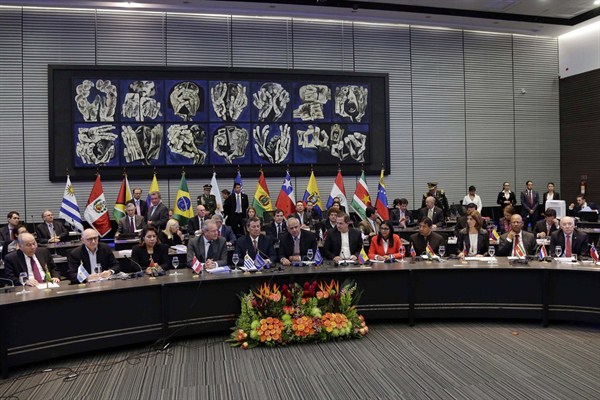Despite its short existence, the Union of South American Nations (UNASUR) has already developed into an important tool of South American crisis management. It assumed a leadership role in de-escalating the ongoing border dispute between Venezuela and Colombia, following earlier efforts to diffuse regional crises—again between Venezuela and Colombia but also between Colombia and Ecuador and in Bolivia. It has generally done so without taking sides or holding leaders to account when they ignore established regional norms. In large part this is due to the fact that UNASUR gives priority to the absolute sovereignty of its member states, rather than exercising an outside watchdog role on matters like democracy and human rights. This has had important implications for Venezuela, but also for Ecuador, where President Rafael Correa has taken a soft authoritarian turn and, perhaps ironically, where the UNASUR headquarters is based.
UNASUR emerged after decades in which perceptions of outsized U.S. influence in Latin America were pervasive in the region. Wariness of the United States still lingers in Latin America under a veneer of cooperation; in some countries, like Venezuela, overt resistance drives relations. Yet the region has traditionally depended on the United States as its largest market, pool of investment capital, educator of elites, supporter of security operations and destination for migrants and source of their remittances. Options for independent Latin America action, no matter how much leaders in the region desired it, have been limited.
That changed in the past decade. Since then, democracies have matured, becoming more self-assured and less reliant on Washington, even as democracy itself continues to be a work in progress in several nations. China has entered into Latin America, bolstering—and now deflating—economies dependent on commodities markets. Poverty and inequality are finally coming down, although the region faces choppy economic waters in the months ahead and citizens become increasingly anxious about their economic security.

